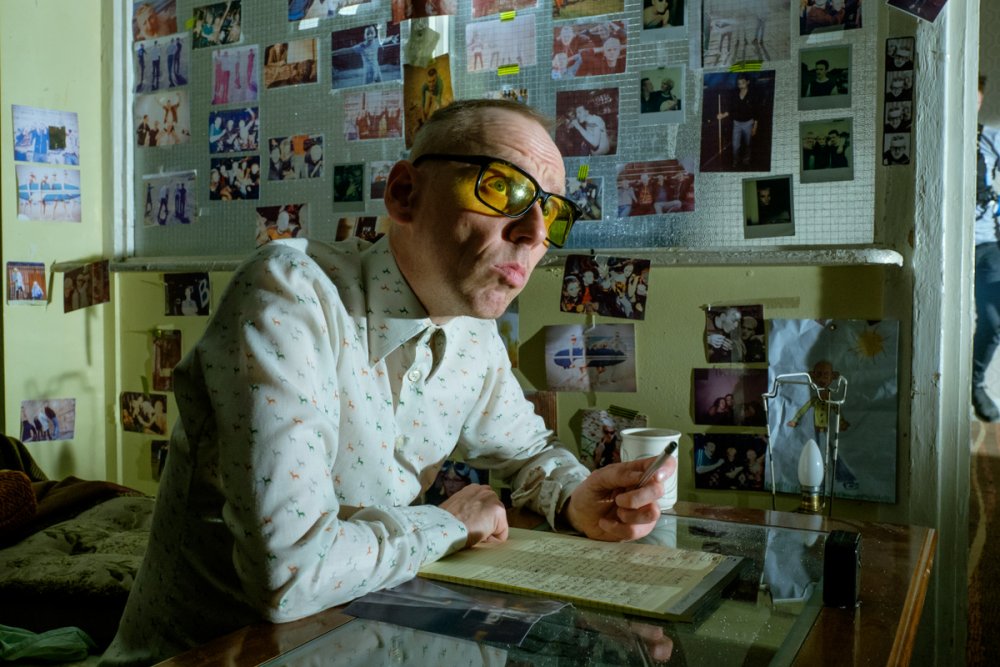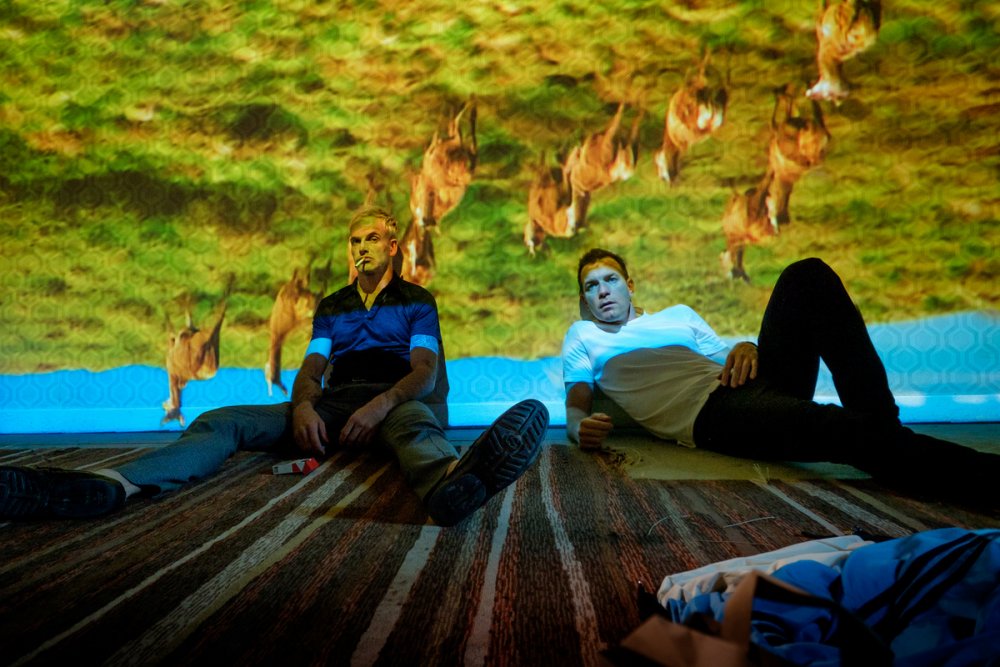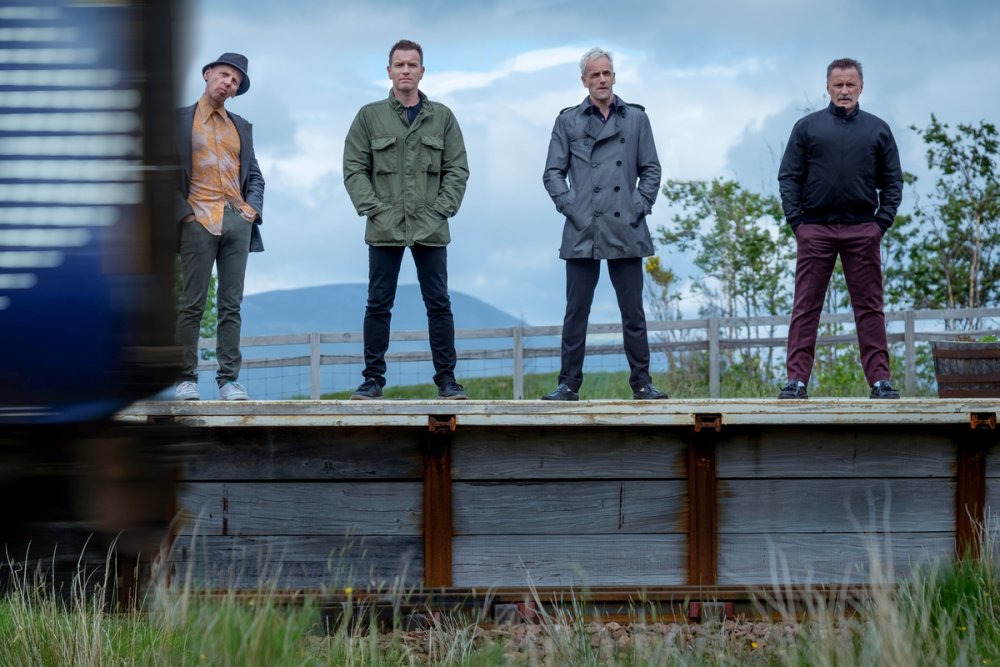It’s dull to pretend there’s no such thing as the zeitgeist, foolish to deny that accounts of it are heavily subjective. Trainspotting was the defining British film of the 1990s, and its soundtrack was everywhere for a few years. Which is to say that I was 15 when it came out, and bowled over by its fast cuts, trippy angles and flashes of fantasy, all as good as new to me. I doubt that I knew the director’s name, and I had yet to be half-educated into the notion that stylistic flourishes needed to be ‘motivated’, or that ‘restraint’ could be a term of praise. I haven’t seen it in two decades; now, like an ageing junkie, pleasure circuits calcified, I need to find more convoluted ways to enjoy the same thing.
UK 2017
Certificate 18 117m 14s
Director Danny Boyle
Cast
Mark Renton Ewan McGregor
Spud Ewen Bremner
Sick Boy Jonny Lee Miller
Begbie Robert Carlyle
Diane Kelly Macdonald
Gail Shirley Henderson
Mikey Forrester Irvine Welsh
UK release date 27 January 2017
Distributor Sony Pictures Releasing UK
t2trainspottingtickets.co.uk
► Trailer
Not dissimilarly, this sequel’s relationship with its times was bound to be less direct and spontaneous. The protagonists of the original chose not to choose life – meaning a family, career (it was the 1990s), mortgage (ditto) – but, being still young, were not completely estranged from their peers. One reason the film resonated was its connection with club culture, even though the main club drug was ecstasy not heroin, and even though Irvine Welsh’s characters belonged to an earlier era. William Burroughs had used the secretive realm of the addict to illuminate the repetition-compulsions of the straight world, but Trainspotting took place in a world where hard drug use was almost mainstream – no metaphor necessary.
And now? Spud (Ewen Bremner) is back on smack, and Begbie (Robert Carlyle) has been in prison. Sick Boy (Jonny Lee Miller) has switched to coke and is trying to set up a brothel, in league with aspiring madam Veronika (Anjela Nedyalkova). Renton (Ewan McGregor), returning to Edinburgh from Amsterdam, has cleaned up and moved on, but the years of addiction have inevitably extracted their due. Apart from his dislocation from home, there is the suggestion that his marriage is coming to an end because of his infertility. His grip on ‘life’ is tenuous and, partly tempted by Veronika, he is eventually drawn into Sick Boy’s scheme.

T2 Trainspotting (2017)
The original characters are now middle-aged, out of touch and prone to looking back, not only to the events of the first film, directly interpolated, but back beyond that, to their first needle, to the incident that explains the title, to childhood, rendered as 8mm home movies. Spud begins to write down stories that we know from the first film, retrospectively becoming its author. The tone is not exactly nostalgic, and the style is hardly meditative – if anything Danny Boyle (I looked it up), working with Anthony Dod Mantle, is more kinetic than ever, swinging the camera around with abandon, alternating filters as the mood takes him, defying film-critical decorum with his jump-cuts and freeze frames.
All of this I not terribly guiltily enjoyed, but the soundtrack is a drag, being mostly composed of tasteful 6 Music fare. There is a pop-cultural logic to having the Prodigy remix ‘Lust for Life’ – ‘Firestarter’ was a hit around the time the first film came out – but the result sounds dated, unlike the original. Only Blondie’s ‘Dreaming’, which better reflects the characters’ retrospective bent, cuts through. An emblematic scene involves a coked-up Renton and Sick Boy blasting out the soundtrack to The Man with the Golden Gun (I think) and boring the much younger Veronika senseless with tales of George Best – echt 90s laddism left to fester, and served up in a concentrated dose.

T2 Trainspotting (2017)
Not everything works. The focus on the past to the near exclusion of everything since 1996 – a long time – becomes oppressive. There are some wry remarks on Leith’s partial gentrification, and Boyle has a sharp eye for locations – Sick Boy’s flat, in particular, captures the feel of what Owen Hatherley has called the “new ruins” left behind by 20 years of so-called urban renewal; but there is a surprising absence of Scotland.
With what, though, are the protagonists no longer in touch? It was inevitable that Renton would revisit the “choose life” speech, inevitable that it would mention social media, and inevitable that it would therefore elicit groans on social media from its first appearance in the trailer. But Renton isn’t wrong, and social media is more akin to addiction than anything named in the earlier litany. Moreover, Renton’s condemnation of social media’s enablement of destructive regret unconsciously reveals his murky reasons for being back – at one point Sick Boy accuses him of being a “tourist in his own youth”. As before, the film holds up a mirror to the outsider but reveals the citizen.
-
The Digital Edition and Archive quick link
Log in here to your digital edition and archive subscription, take a look at the packages on offer and buy a subscription.





